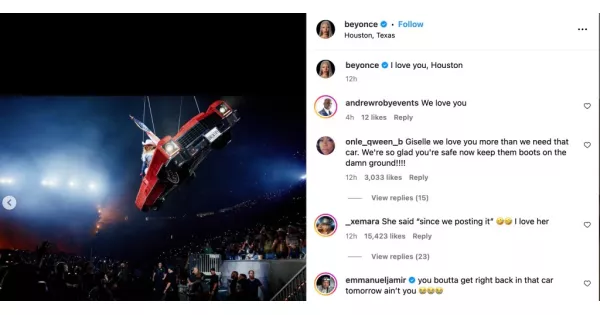The 67th annual Grammy Awards unfolded under a shadow, a somber undercurrent running beneath the glittering spectacle. The recent devastating Los Angeles wildfires cast a long, somber pall over the proceedings, an unspoken acknowledgment woven into the fabric of the evening. While the usual glitz and glamour were present, a palpable sense of gravity permeated the air, a quiet tribute to those affected by the tragedy. This context shaped the narrative of the night, lending a poignant backdrop to the triumphs and celebrations.
Beyoncé, a titan of modern music, finally claimed her elusive Album of the Year award. Years of groundbreaking albums, innovative performances, and relentless artistic evolution culminated in this momentous victory, a validation of her unparalleled contributions to the industry. The win, though long-overdue in the eyes of many, felt intensely earned, a testament to her enduring power and influence. The audience erupted in a thunderous ovation, a collective sigh of relief and jubilation. Her acceptance speech, characteristically eloquent and humble, resonated with the audience, striking a balance between personal gratitude and a wider acknowledgment of the challenges facing the world. The win transcended mere musical recognition; it became a symbol of perseverance, artistic integrity, and the enduring power of a singular vision. It was a moment that solidified her position not only as a leading artist but as a cultural icon.
Meanwhile, Kendrick Lamar, a master craftsman of lyrical prowess and social commentary, dominated in the rap categories. His track, "Not Like Us," a fiery anthem brimming with both personal vulnerability and sharp social critique, swept the Song, Record, and Rap Song of the Year awards. This trifecta cemented his position as a leading voice in contemporary hip-hop, a genre known for its fiercely competitive landscape. The recognition wasn't just about musical excellence; it was a validation of his fearless exploration of complex themes, his ability to weave personal narrative with societal commentary, and his unwavering commitment to artistic honesty. His acceptance speeches, while brief, pulsed with a raw energy that reflected the intensity of his art. He dedicated his wins to those impacted by the fires, subtly underscoring the interconnectedness of art and life, the ability of music to offer solace and strength in times of adversity.
The success of "Not Like Us" was a microcosm of the evening itself – a blend of personal achievement and a broader social consciousness. The song’s raw, visceral energy resonated with the emotional backdrop of the night, making the wins all the more significant. It highlighted the power of music to both reflect and shape cultural narratives, to offer both catharsis and critical engagement. The sheer artistry of the track, the precision of its production, and the depth of its lyrical content transcended genre boundaries, earning it universal acclaim across musical spectrums.
Beyond Beyoncé and Lamar's wins, the evening showcased a diverse array of musical talents, reflecting the ever-evolving landscape of the industry. The Country Album of the Year award, presented to Cowboy Carter, provided another compelling storyline. The win highlighted the resilience and diversity within the country music genre, challenging preconceived notions and showcasing the breadth of its artistic expression. The acceptance speech, imbued with heartfelt emotion, served as a powerful reminder of the personal journeys and struggles that fuel artistic creation.
The 67th Grammy Awards wasn't just a celebration of musical achievement; it was a poignant reflection on the human experience. The shadow of the wildfires served as a constant reminder of the fragility of life and the power of community. The performances, the awards, and the acceptance speeches all resonated with this underlying theme, creating an evening that transcended mere entertainment and became a deeply moving cultural event. The wins themselves, while significant markers of individual success, felt imbued with a collective significance, a shared acknowledgment of the interconnectedness of art, life, and the enduring human spirit. The night ultimately served as a testament to the resilience of both the human spirit and the enduring power of music to connect, heal, and inspire.
Grammy Awards: Beyoncé Wins Her First Album Of The Year Prize; Kendrick Lamar Takes Song & Record Of The Year; Chappell Roan Best New Artist – Full List
Here are the winners at the 2025 Grammy Awards, held February 2 at Crypto.com Arena in Los Angeles. The event doubled as a fundraiser for L.A. wildfire relief.




